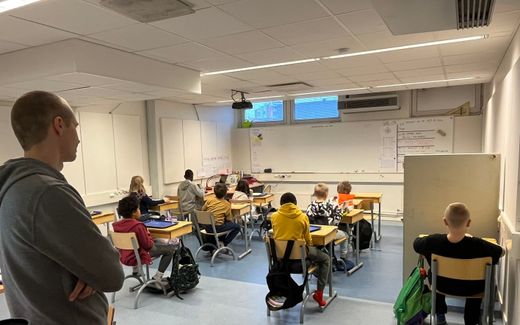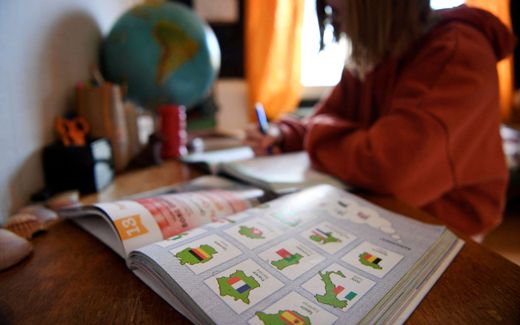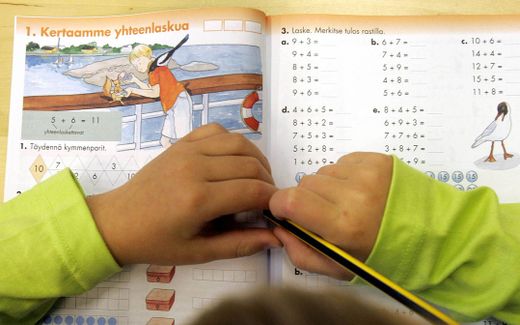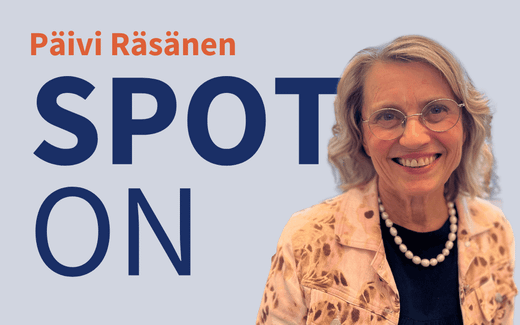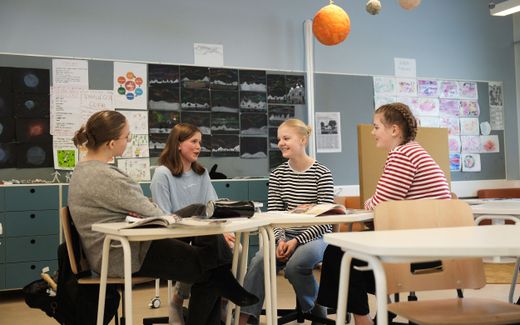It's forward and backward with Christian schooling in Finland
26-06-2025
Northern Europe
Seppo Saari

Pupils of the Christian school of Keski-Uusimaa. Photo Keski-Uudenmaan kristillinen koulu
Northern Europe
One step forward, one step backwards. That is the situation for Christian schools in Finland. Christians in Finland were looking forward to more supportive legislation for Christian schools. The government seems to have decided not to grant new permits, Seppo Saari writes.
Stay up to date with Christian news in Europe? Sign up for CNE's newsletter.
This spring brought both celebration and setback for Christian schools in Finland. In May, the Finnish government granted a permanent operating licence to Rovaniemi Christian School, which was established in 2016. However, the school’s capacity is limited to a hundred pupils.
Besides, on June 12, the government rejected new school applications for Seinäjoki and Kouvola. These rejections have been widely interpreted as a sign that Finland is no longer open to the idea of establishing new Christian schools. This sentiment is echoed in official feedback documents from the Ministry of Education.
Sami Korhonen, the Chair of the Seinäjoki Christian School project, says that “the decision seems to be based solely on a prejudgment not to grant new permits.” He continues, “corrections to the curriculum were not considered at all in the statement.” The Chair says that he and others are working on appealing the decision.
Age groups
Since the legislative changes in 1998, Christian schools have been eligible to operate as recognised comprehensive schools. Today, 16 Christian schools offer basic education across the country. Two operate as homeschools, and one has repeatedly faced rejection in its applications.
The government’s decision doesn’t indicate appreciation for education based on a Christian worldview.
The rejection of two new schools’ applications is justified by the claim that there are no prerequisites for obtaining a teaching permit because age groups in Finland are shrinking.
Nevertheless, the decision doesn’t consider the need for education from the perspective of parents and pupils. The municipalities had agreed and recommended that the new schools add a variety of educational choices. Furthermore, the government’s decision doesn’t indicate appreciation for education based on a Christian worldview. Students would be enrolling in the new schools, which suggests that this type of education is needed and valued. The applicants thoroughly met the requirements concerning staff qualifications.
Human rights
Looking ahead, those hoping to start new Christian schools face significant challenges. The education policy by the Ministry of Education seems to be at odds with the current government’s own 2023 program, and with international agreements that support educational diversity.
A genuinely civil society is responsible for treating worldview-based private schools fairly, allowing them to operate as official, tuition-free schools.
Jukka Sipilä, chairman of the National Alliance for Christian Schools and Kindergartens, says he is very disappointed with the rejections Christian schools faced earlier in June. He refers to the international declarations and covenants that all Western nations must uphold. A genuinely civil society is responsible for treating worldview-based private schools fairly, allowing them to operate as official, tuition-free schools. These schools are not elitist; they serve families whose tax money supports both public and private education.
It seems that the purposes of parents’ human rights declarations are not taken as seriously as they should be in a Western Finnish democracy, which is proudly considered a state governed by the rule of law.
According to the principles outlined in the Levrat report, Christian worldview schools represent a religious minority stream and are an exception to mainstream education.
Homeschool
The Seventh-day Adventist Church founded the first operating Christian school in Finland in 1932. A new Christian school movement emerged during the 1980s. It gained momentum with the establishment of the interdenominational Helsinki Christian School (HCS) in 1987. It started modestly as a homeschool with six pupils and two qualified teachers.
From the beginning, the founders aimed to develop it into an official school meeting all required standards. The school’s educational philosophy was influenced by the teachings of Youth With a Mission and the views of Dutch statesman Abraham Kuyper (1837–1920), a strong advocate for private schooling, free of school fees.
Legislative development
During the 1980s, Finnish legislation did not have updated legislation establishing official private comprehensive schools. The Helsinki Christian school engaged in negotiations with education officials, Parliament, and the Ministry of Education for seven years before a political consensus was finally reached. The school was granted its permit in 1995.
The HCS’s value-based curriculum received positive feedback from universities in their reports to the Ministry of Education. It also sparked a broader discussion about educational values, including public schools.
A significant milestone was the introduction of the Basic Education Act in 1998. For the first time, the law explicitly acknowledged schools based on specific worldviews and pedagogical approaches. It aligned with key human rights declarations, conventions, and covenants from the UN, for example, the International Covenant on Economic, Social and Cultural Rights and the Universal Declaration of Human Rights, and from UNESCO, and EU, supporting parents’ right to choose education that aligns with their values and worldview.
The Christian worldview
Finnish legislation introduced in the 2000s affirms that Christian cultural heritage is an appreciated element of education and an objective for all comprehensive schools. According to the law, education must, among others, promote knowledge and understanding of Christianity and Christian traditions.
Authorities and politicians will need religious literacy to grasp that Christian education is founded on freedom of choice.
The legislation sets specific requirements for private schools based on a worldview: pupils receive education emphasising values, knowledge, skills, and competencies rooted in their worldview. This provision ensures that Christian schools have both the right and the responsibility to integrate the Christian worldview across all areas of teaching. School-based curriculum must align its school-specific and local curriculum with the national core curriculum.
Recent feedback on application documents reiterates earlier concerns that the interpretation of the Christian worldview is not valued. Authorities and politicians will need religious literacy to grasp that Christian education is founded on freedom of choice. This approach encourages the exploration of values, beliefs, and convictions, emphasising free choice.
Positive development
Perhaps it’s time for Finland to take a broader view of what school education can look like.
For example, in the Netherlands, 70 per cent of primary school children attend private schools, and 80 per cent of those attend Christian schools. In contrast, only 2.9 per cent of Finnish children attend private schools at all, and just 18 per cent of those are enrolled in Christian schools. These figures reflect the marginal role that private education plays in Finland. For nearly 40 years, new school applications have regularly faced resistance.
Restrictions on establishing private schools appear to be driven more by political considerations than financial ones.
At the same time, there are positive developments in Finland. The Finnish Parliament recently decided to increase municipal compensation for private schools from 94 per cent to 100 per cent, effective in 2025. That does not change the state budget but is cost-neutral because the 6 per cent was earlier allocated to the municipalities.
Future aspirations
Although some progress has been made, challenges remain. It is important to note that comprehensive school education is cost-neutral for the state budget, regardless of whether a school is public or private. Funding is allocated to education providers based on the number of enrolled pupils. Therefore, restrictions on establishing private schools appear to be driven more by political considerations than financial ones. The decision documents avoid using political reasons, instead emphasising monetary aspects and formal details in the curriculum.
The Christian school movement was established to reconnect with the foundations of Western civilisation and education. It recognises the worldview that the Bible is God’s Word and the true source of life, wisdom, and intellect. Christian worldview schools have well-founded legal rights to operate, providing an environment where the Christian worldview can challenge both learning and character.
Finnish Basic Education
The Finnish school system is based on a 9-year comprehensive school, known as basic education. It primarily covers the age range from 7 to 16. One-year of pre-school education is mandatory, provided by comprehensive schools, kindergartens, day-care centres, or arranged by parents.
Related Articles

